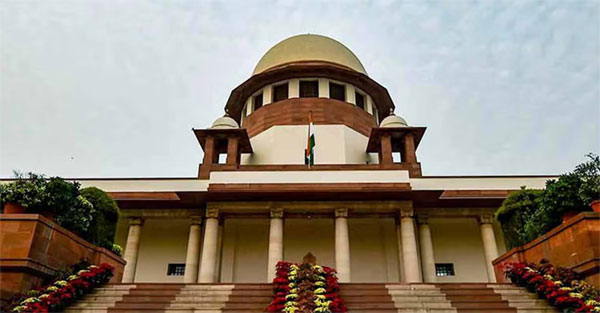Daijiworld Media Network - New Delhi
New Delhi, Aug 20: The Supreme Court raised strong concerns on Wednesday over Governors withholding assent to Bills indefinitely, warning that such unchecked power could reduce elected state governments to functioning “at the whims and fancies” of Governors.
A Constitution Bench led by Chief Justice of India (CJI) D.Y. Chandrachud was hearing a Presidential reference under Article 143, which followed a previous Supreme Court ruling that criticised Tamil Nadu Governor R.N. Ravi for stalling ten state Bills.
Solicitor General Tushar Mehta, representing the Centre, argued that Article 200 gives a Governor four options when presented with a Bill: assent, withhold, return, or reserve it for the President. Mehta claimed that a Governor may withhold assent indefinitely without needing to return the Bill for reconsideration.

CJI Gavai countered this view sharply: “Would we not be giving total powers to the Governor to sit in appeal? The government elected with the majority will be at the whims and fancies of the Governor.” He added that such an interpretation undermines democratic processes and violates federal balance.
The Bench also questioned whether Governors, in practice, have lived up to the expectations of harmony envisioned in Constituent Assembly debates. Justice Surya Kant noted that constitutional powers must not be interpreted based on worst-case misuse but should reflect democratic intent.
The reference to the court was made by President Droupadi Murmu in May 2025, seeking clarity on the constitutional options available to a Governor under Article 200 and whether their discretion is justiciable, especially given the immunity granted by Article 361 of the Constitution.
The current proceedings follow an earlier ruling in April 2025, where a two-judge Supreme Court Bench declared Tamil Nadu Governor Ravi’s delays in assenting to Bills as “illegal and arbitrary.” The court had invoked Article 142 to deem the 10 Bills as passed and set a three-month deadline for future assent decisions—either by the Governor or the President.
That ruling brought Presidential action under judicial review, stating that the President must also provide reasons for withholding assent and that such decisions may be scrutinised if not delivered within a reasonable time.
The Supreme Court is now tasked with answering whether a Governor is constitutionally bound to act on the aid and advice of the state Cabinet, and if judicial timelines can be imposed on both the Governor and the President in legislative matters.
The case, which is scheduled to continue on Thursday, may define the future contours of Centre-State relations and constitutional accountability at the highest levels of government.